How to Spot Cataract Symptoms This Spring
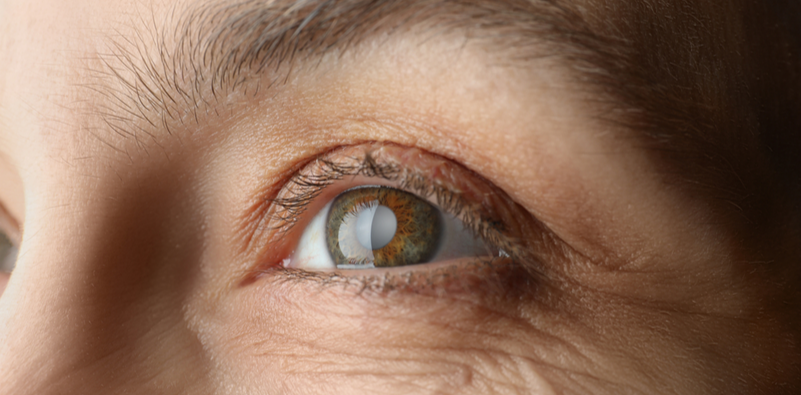
Cataracts are one of the most common eye-health issues in people over the age of 40. More than 25 million Americans suffer from cataracts, with the risk increasing in patients over the age of 65. Spring is one of the best times to see your eyecare provider about cataract symptoms. As you spend more time outdoors it is important to get your eyes checked for cataracts to ensure you can enjoy your favorite activities safely and with clear vision.
Let’s review some of the symptoms and what treatment options are available for people who suffer from cataracts.
What Are Cataracts?
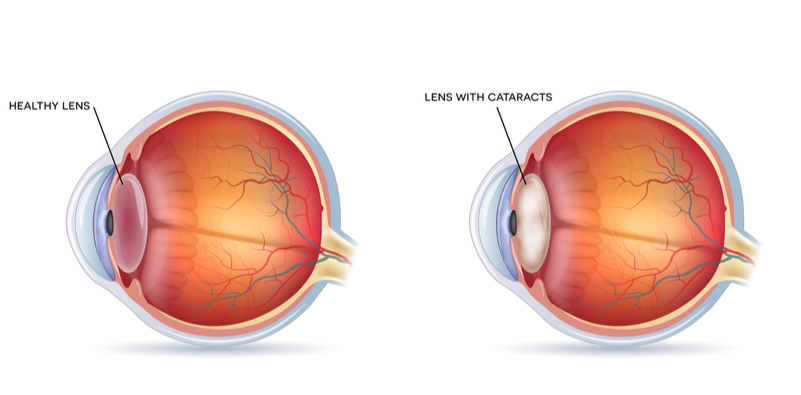
Cataracts are one of the most recognizable eye conditions, often appearing as clouding on the lens of the eye. Patients are often still able to see, however over time their vision becomes cloudy or foggy. Cataracts can be slow to diagnose because patients often dismiss the symptoms as age-related vision deterioration.
What Are The 3 Most Common Types Of Cataracts?
Nuclear Sclerotic Cataracts – This is the most common type of cataract. Patients may experience a gradual hardening of the central zone of the lens. This will expand to the other layers of the lens as the cataract grows. This type of cataract can distort near vision but may take several years to affect a person’s overall vision.
Cortical Cataracts – This type of cataract forms on the shell layer of the lens also known as the cortex. Overtime patients may notice problems with blurred vision and depth perception.
Posterior Subcapsular Cataracts – Affecting reading and night vision, posterior subcapsular cataracts form as opaque or cloudy areas on the back surface of the lens. This type of cataract can make it difficult to read due to the halo effect and glare created when near lights. People with diabetes, near-sightedness, and retinitis pigmentosa are more prone to developing this kind of cataract.
What Are The Symptoms Of Cataracts?
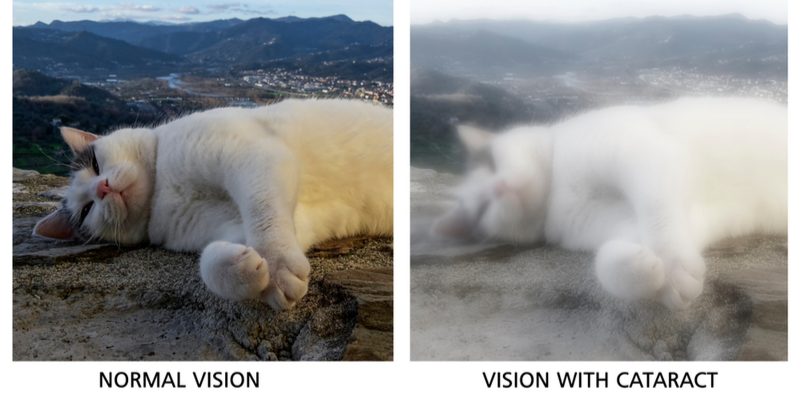
Symptoms of cataracts can often be confused with regular vision deterioration. This is why it is important to see your eyecare provider regularly to detect any changes in vision.
Some of the most common symptoms of cataracts are:
- Cloudy or blurry vision
- Difficulty seeing at night
- Light sensitivity
- Halos around the eyes
- Needing to upgrade your eyeglasses prescription frequently
- Yellowing of the eyes
- Double vision
Not seeing your eyecare professional can lead to long-term vision damage. It is important to talk to see your eye doctor if you are experiencing any of these symptoms.
How To Treat Cataracts
The most common cataract treatment is surgery. Thousands of surgeries are performed around the United States every day.
- Your surgery will be done by a highly trained eye surgeon
- Your surgeon will numb the area around the eye. Some patients prefer to have a sedative to help relax during the procedure.
- Finally, your surgeon will remove the clouded lens and replace it with a clear artificial lens.
This entire process takes less than half an hour and in most cases, patients can return home on the same day to begin their recovery.
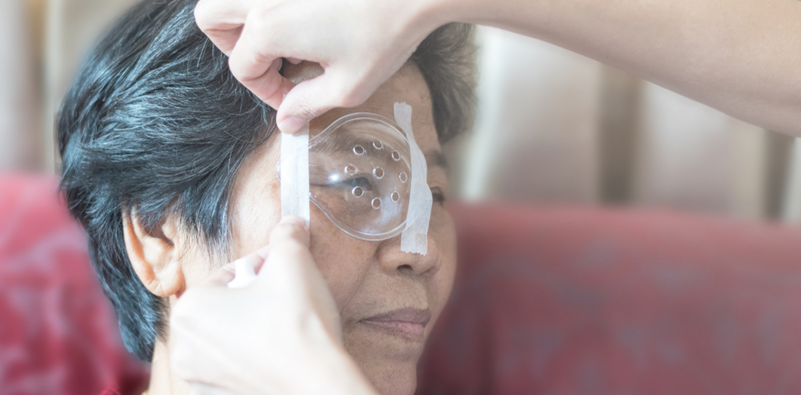
Patients with less severe cataracts may not require an artificial lens implant. Your eyecare provider will review the best solution for your specific vision health needs once they have done an eye exam.
What Are The Short-Term And Long-Term Effects Of Cataracts?
Not all patients will require surgery, however, it is important to monitor cataracts often. Some patients may experience short-term effects like double vision or sensitivity to glare.
Patients with long-term effects may experience a reduction in near vision. They may also experience long-term blurred or clouded vision.
Cataracts left untreated may lead to the development of glaucoma or blindness.
What Are The Risks Of Developing Cataracts?
One of the best ways of lessening your chances of developing long-term effects of cataracts is to understand the risks associated with developing them.
Factors that can increase your risk of developing cataracts include:
- Age
- Diabetes
- Long term exposure to sunlight
- Smoking
- Excessive alcohol consumption
- Obesity
- High blood pressure
- Eye injury or previous surgery
- Use of corticosteroid medications
Glasses for Cataracts
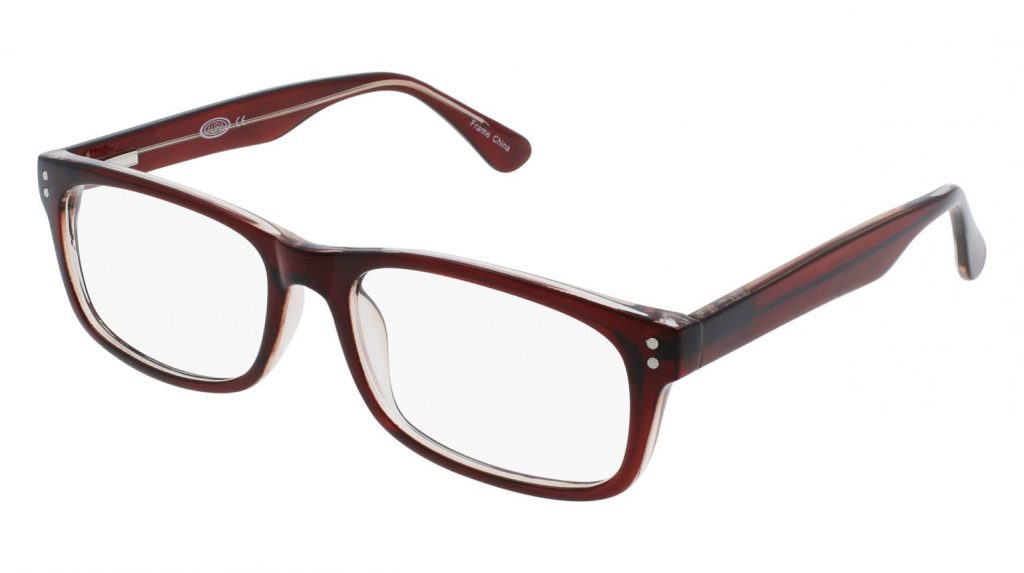
Patients with cataracts will often notice changes in their vision. That’s why it’s important to see your eyecare provider regularly as they will most likely prescribe a reading glasses prescription after cataract surgery to adapt to your new vision needs. You can then place these lenses in those designer glasses you’ve had your eye on from our collection, including the wonderful Aura glasses. Specs for Vets offer the largest selection of women’s and men’s reading glasses to accommodate patients who have been diagnosed with cataracts. We also offer replacement lenses, so you don’t have to worry about giving up the frames you love.






